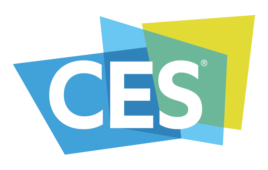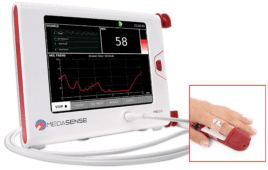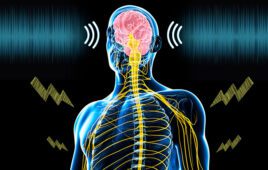A new, painless, non-invasive procedure that harnesses ultrasound technology to reposition kidney stones will undergo testing in emergency patients.
The development and assessment of the new technology is led by University of Washington and UW Medicine, in collaboration with other universities and agencies.
Kidney stones are an increasingly common condition that affects 1 in 11 Americans during their lifetime. The condition is even more frequently encountered in astronauts during space travel. The hope is that the new technology could benefit astronauts as well as Earth-side patients.
The approach will be tested on local patients at UW Medicine’s Harborview Medical Center and University of Washington Medical Center emergency departments.
After the invention of an ultrasound device to better detect kidney stones, engineers from the Applied Physics Laboratory at the University of Washington observed that they could accurately reposition small objects with ultrasound on a laboratory table. In conjunction with partners in the UW School of Medicine urology, emergency medicine, and radiology departments, the researchers went on to advance the technology and to use the same waves from a hand held ultrasound transducer to re-locate kidney stones in preliminary tests.
The work has also led to a spin off company, SonoMotion, which is working to develop a commercial device for the same purposes of non-invasive kidney stone repositioning.
Every year, more than 600 people in the throes of a kidney stone episode seek emergency care at Harborview and UW Medical Center in Seattle. Kidney stones become symptomatic if they enter the urinary tract, have trouble passing, and become stuck where they can cause debilitating pain. In addition, obstruction of urine flow causes a backup. This can result in swelling of the kidney and cramping in the ureter, thereby setting the stage for infection or further kidney damage.
Because space travel makes astronauts prone to kidney stones due, in part to bone demineralization from weightlessness, they are at increased risk. The NASA evidence base and publications note that astronauts have had more than 30 instances of kidney stones within two years of space travel. Medical assistance is a formidable challenge for those orbiting this planet or heading to other solar system destinations.
“For this trial we will be trying to reposition obstructing stones for our emergency department patients,” said Dr. M. Kennedy Hall, assistant professor of emergency medicine, and co-principal investigator of the study along with Dr. Hunter Wessells, professor and chair of urology, both at the UW School of Medicine
For rest of the story click here.

A prototype of an ultrasonic propulsion of kidney stones system being tested for NASA and developed at the University of Washington Applied Physics Laboratory. A similar system will be tested in UW Medicine emergency department patients to move kidney stones to prevent blockage and reduce pain. CREDIT Alice C. Gray




